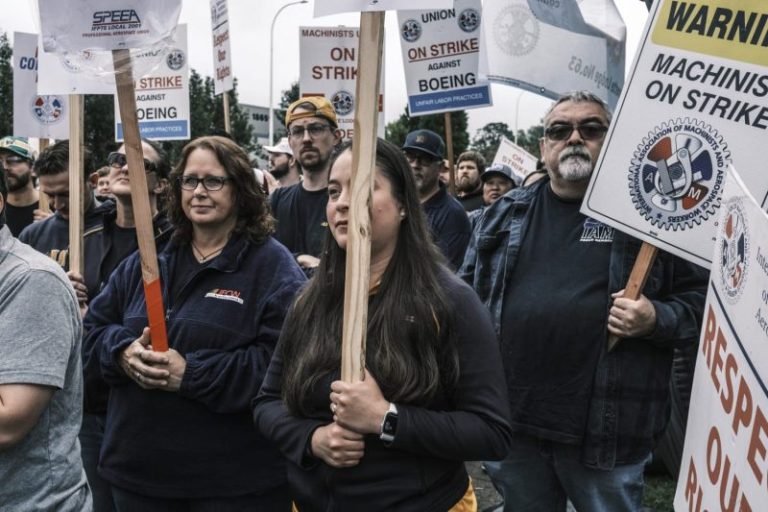In recent news, aviation giant Boeing has announced plans to cut approximately 17,000 jobs due to deepening losses resulting from an ongoing factory strike. This development has sent shockwaves through the industry and raised concerns about the future of the company and its workforce. The decision to reduce its workforce by such a significant number is a drastic measure that reflects the severe financial strain facing Boeing. This move is expected to have far-reaching implications, not only for the employees directly affected but also for the broader aviation sector and the economy at large.
The factory strike that has significantly impacted Boeing’s operations has highlighted the challenges faced by the company in recent years. The disruption caused by the strike has led to production delays and slowdowns, further exacerbating Boeing’s financial woes. The decision to implement such a massive jobs cut signals the seriousness of the situation and the need for urgent action to stabilize the company’s finances.
The impact of Boeing’s job cuts will be felt by thousands of employees who will be facing uncertainty about their future employment. The loss of livelihood for so many workers is a devastating consequence of the company’s financial struggles and the factory strike. It is essential for Boeing to provide support and assistance to affected employees during this challenging period to help them transition to new opportunities and navigate the difficult job market.
Beyond the immediate impact on Boeing’s workforce, the job cuts are likely to have broader implications for the aviation industry and the economy as a whole. Boeing is a major player in the global aviation sector, and any significant disruption to its operations can have ripple effects across the industry. The loss of thousands of jobs at Boeing could lead to a ripple effect, affecting suppliers, contractors, and other businesses that depend on the company’s operations.
Furthermore, the job cuts at Boeing underscore the importance of addressing the root causes of the company’s financial struggles and operational challenges. It is imperative for Boeing to address issues such as labor disputes, production delays, and cost overruns to ensure the long-term viability of the company. By implementing strategic reforms and restructuring measures, Boeing can work towards a more sustainable and resilient business model that can weather future challenges more effectively.
In conclusion, Boeing’s decision to cut 17,000 jobs in response to deepening losses during a factory strike is a significant development that highlights the urgent need for the company to address its financial challenges. The impacts of these job cuts will be far-reaching, affecting employees, the aviation industry, and the broader economy. Moving forward, Boeing must focus on implementing strategic reforms and restructuring efforts to ensure its long-term viability and restore confidence in its operations.



